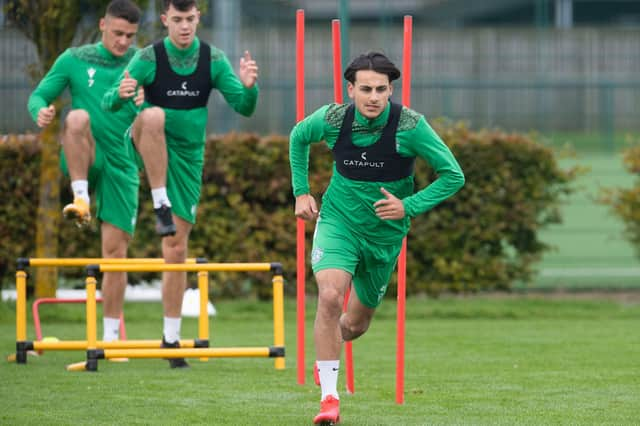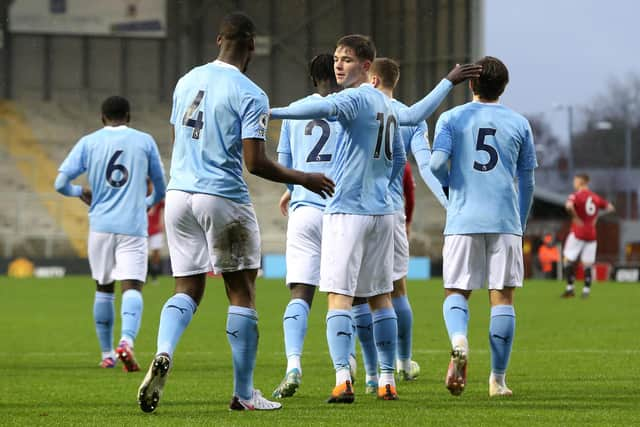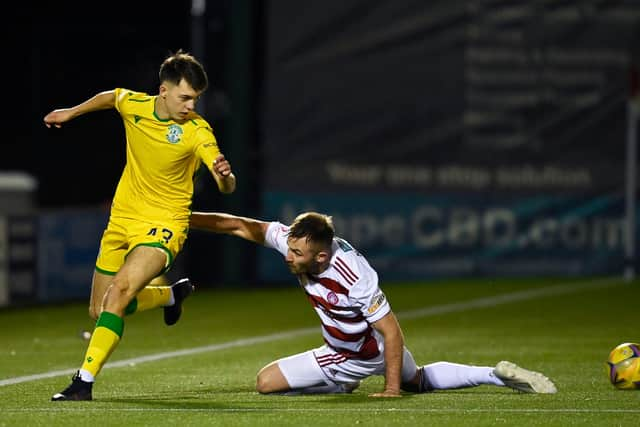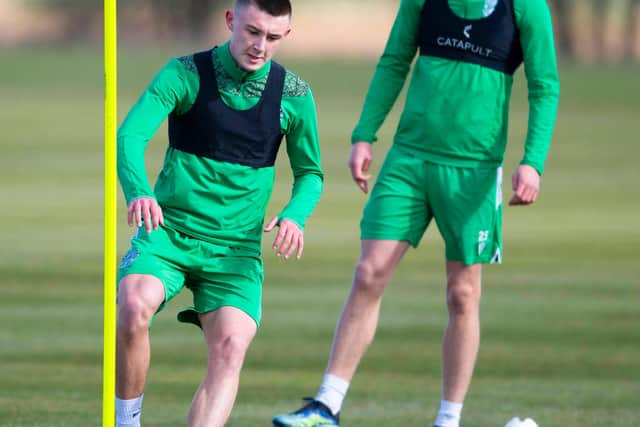Why Hibs could send more youngsters overseas - and how Man City are inspiring the Easter Road side


Young forward Ryan Shanley is currently impressing on loan at Irish side Finn Harps while fellow youngsters Dino Leddie and Yrick Gallantes have also spent time overseas this season; Leddie in Spain and Gallantes in his native Philippines.
The ongoing coronavirus pandemic has however taken a toll on some of the club’s plans for the development team and younger players.
Advertisement
Hide AdAdvertisement
Hide AdMathie revealed that the different “bubbles” have prevented youngsters from having the same sort of access to the first team that they would have enjoyed pre-Covid.


“The development squad have been training at three in the afternoon and haven’t had access to the first team, which has been a real shame,” Mathie said.
"Someone like Jacob Blaney has been in a year now and has only really trained in the morning for a week or ten days, and that wouldn't be normal.
"Normally we'd have the development squad training at the same time, and the manager can say, ‘we need three players across’ and over they go and they get that experience.”
Advertisement
Hide AdAdvertisement
Hide AdHibs are keen to have a system in place that allows for greater cohesion between the first team and the development squad and although the pandemic has delayed matters, Mathie has outlined a clear process for the younger Easter Road players going forward – with one English Premier League side in particular providing inspiration.


"Manchester City, for example, want a young under-23 squad and there are three choices for those players.
"One is an exit; one is a loan, which can be either to develop players or to try and market players to sell them.
"In Hibs’ case a development loan would be Ryan joining Finn Harps which is tough, and a challenge. The marketing loan is different; you might put someone on a stage where you think they’re going to really flourish and show all their good points and try to create a value.
Advertisement
Hide AdAdvertisement
Hide Ad"The third thing is a first-team training experience. The under-23 players go and train with the first-team for a six-month period. When I spoke to Jack [Ross] and John [Potter] about it they quite liked the idea because for certain players at certain ages, it stops them or an agent asking when they're going out on loan, or saying that such-and-such a team is interested.


"That is their training programme defined for six months. Steven Bradley has had that experience this year, and I think it's really benefited him.
"Probably up until January, he couldn't really have gone out on loan because he was coming back from an injury, but he had a set period of time with the first team, he was in the squad, he got a couple of opportunities to come off the bench, and his development really kicked on.
"We want to try and formalise that a bit more next year. Once the development squad and the first team can train together, it will be a lot easier.”
Advertisement
Hide AdAdvertisement
Hide AdMathie believes having different opportunities to suit different players is vital in helping to nurture burgeoning talent.
"It’s about having a plan and being able to say, here's what we want to do with certain players to market them, here’s we want to do with certain players to really challenge them with a loan, here are the players we want to work with Stenhousemuir because we think they're ready to do that, here are the players that may go up to the first team for a defined period. Everybody knows where they are, at any given time.
"I sound like a broken record because I say it all the time but talent and development is not linear. There's never a one-size-fits-all approach for young players.
"What we need to do is try and blend as many different types of experiences that benefit the individuals we can.”
Advertisement
Hide AdAdvertisement
Hide AdAs a result, Mathie is keen for more players to experience a different footballing environment.
Norway opportunity
"With Ryan, the benefit for him isn't necessarily the style of play at Finn Harps; it's in all the other aspects of the loan move,” he explained.
“One of our young players was due to go to Norway on loan; it was pretty much confirmed and unfortunately the travel restrictions prevented that from happening, but that one was really exciting for me.
"I think that style of football for that young player would have been great for them and I think it would have really given him a profile in a different market and being in an environment where he’d have been pushing for promotion at the top end of the second tier at a big club, with a really good structure, and undoubtedly learning different ways to train, would just take him right out of his comfort zone.”
Benefits of foreign loans
Advertisement
Hide AdAdvertisement
Hide AdA number of clubs in England, including Chelsea and Manchester City, have sent scores of youngsters overseas as part of their development and while not identical to Hibs’ situation, there is naturally some overlap – and Hibs could look to utilise it more in the future, according to Mathie.
"The foreign loans are really interesting on two fronts: to potentially give players access to different markets and in some cases it may be part of a kind of exit from the club.
"But from a development perspective there are numerous benefits to it and it’s something I think we should probably resource a little bit more in terms of the psychological support and mental well-being support that we can give to players when they are away because although we really appreciate the challenges that they’re getting, we also need to be prepared to support them in it."
A message from the Editor:
Thank you for reading this article. We're more reliant on your support than ever as the shift in consumer habits brought about by Coronavirus impacts our advertisers.
If you haven't already, please consider supporting our sports coverage with a digital sports subscription.
Comment Guidelines
National World encourages reader discussion on our stories. User feedback, insights and back-and-forth exchanges add a rich layer of context to reporting. Please review our Community Guidelines before commenting.